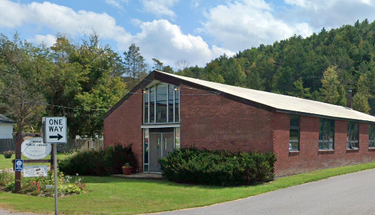Berne proposes switch to sole appointed assessor
BERNE — Berne introduced a local law last week that, if passed, will put the town in line with more than 90 percent of municipalities in the state who have opted for a sole assessor over the near-archaic three-assessor system.
Sole assessorship is heavily encouraged by New York State, describing it as more efficient and practical on several levels in state documents. The state had changed its law in 1970 to move away from the old, cumbersome system, but gave municipalities the chance to opt out of the change, and half did, according to the state.
But the state allowed municipalities to change their minds, and now, fewer than 6 percent have three elected assessors, choosing instead a single assessor who can be either elected or appointed.
Berne is the only Hilltown that has yet to make the switch, with the most recent being Rensselaerville, which adopted its sole-assessor law in 2019.
Making the change is significant insofar as it typically involves prematurely ending the terms of the three elected assessors and figuring out an appointment. Since Berne assessor Brian Crawford retired at the end of 2022, the town currently only has two assessors, Melanie Bunzey and Christine Valachovic, whose four-year terms end in 2026 and 2024, respectively.
State law holds that the terms of contemporary assessors will end on Dec. 31 of the year that a local law making the switch to a sole assessor takes effect.
Bunzey declined to comment on the potential change to her term, and Valachovic could not immediately be reached.
Berne will then have the option of appointing, to a six-year term, an assessor who lives outside the town, rather than be beholden to residency requirements that are incumbent on all elected officials. In fact, many assessors work for multiple towns at a time.
The appointed assessor must, however, meet state requirements that are not expected of elected assessors, such as experience in the field of property valuation, in addition to the basic certification requirements that all assessors must meet.
The state claims that the longer term and insulation from voters’ whims allow for greater depth of experience, and more potential for “professional, career-oriented” servants, since elected assessors have, on average, a 40-percent higher turnover rate.
Other advantages, according to the state, are cost-savings from fewer salaries to pay, less gas to reimburse, and a more streamlined administration and training process. The money saved on salaries can be put toward a higher salary for the sole assessor, which further encourages them to stay with a municipality.
Having one person making decisions also makes for a more equitable, or at least predictable, outcome for residents, the state says.
Potential pitfalls
While switching to an appointed assessor may reduce political pressure from tax-minded voters, the appointment of an assessor is still an inherently political process, with the usual political — and possibly legal — pitfalls, as was seen in Westerlo in 2019.
That year, the Westerlo Town Board announced, after a unanimous vote, that it was taking applications to consider a replacement for its assessor at the time, Peter Hotaling, who had held the job for 19 years and whose term was ending the month the announcement was made.
The decision, championed by then-Supervisor Bill Bichteman, came down to the cost of health insurance and Hotaling not meeting office-hour requirements in the town. But, in part because Hotaling was dealing with various health issues that in some cases required hospitalization, the decision was controversial with residents, who appeared to be split by party lines despite the board’s bipartisan vote.
When The Enterprise reported that Hotaling was entitled to Civil Service protections, per the Albany County Department of Civil Service, the question became one of legality, and Hotaling filed an Article 78 against the town in an attempt to get his job back.
The town, under the counsel of attorney Javid Afzali — who had already misguided the town of Knox in a protracted Civil Service drama that cost the town in legal fees and a settlement, and began representing Berne after it ran afoul of a different law but under similar circumstances in 2020 and was successfully sued over it — maintained that it did not violate Civil Service law.
The question was never resolved, however, since Hotaling ultimately withdrew his lawsuit and declined to provide an explanation to The Enterprise.
Because Hotaling’s position was purportedly protected on the basis that he had worked for the town continuously for five years, the prospect of a six-year appointment can be especially daunting, if indeed a court would have found that the town had to determine probable cause to replace him and allow him a hearing.
Even without that consideration, at least one former supervisor, Vasilios Lefkaditis of Knox, explained his hesitation before voting to appoint a new assessor in 2019.
“It’s a long appointment,” Lefkaditis said at the time. “If you get stuck with the wrong person, you’re in trouble for six years.”
Berne’s proposed law will be subject to a public hearing at 6:30 p.m. on Feb. 8 at the senior center, at 1360 Helderberg Trail, just before the town board’s regular 7 p.m. meeting.


